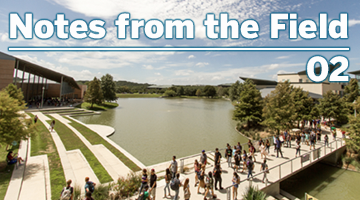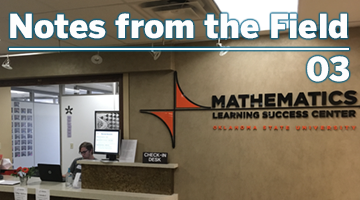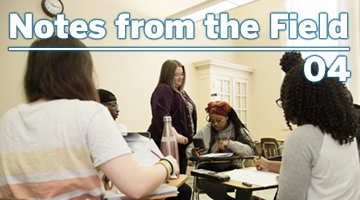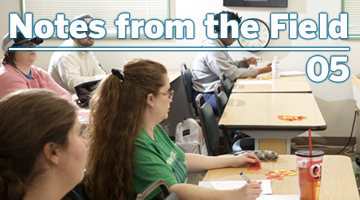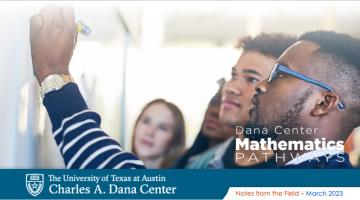Notes From the Field is a collection of innovative practices from colleges, universities, and systems that show the DCMP Principles in action. Learn how these institutions—in different stages of implementation and working in their local context—found creative and effective approaches, which can also help others in building, supporting, and scaling math pathways.
For example, a multi-campus community college system cultivated faculty support through authentic dialogue and by directly addressing faculty concerns across disparate institutions. One college created a fun board game to help both students and advisors gain a better understanding of math pathways. Another institution used clever “backward mapping” of student course data to provide support for state-level policies on transferability and applicability, while elsewhere, a statewide effort brought about alignment of relevant gateway math courses. Two-year and four-year institutions are designing and scaling co-requisite supports as well as adopting multiple placement measures and pedagogy-driven student support services. A straightforward data collection tool has highlighted exemplary practices continuous improvements.
Peruse Notes from the Field for these stories and more.



